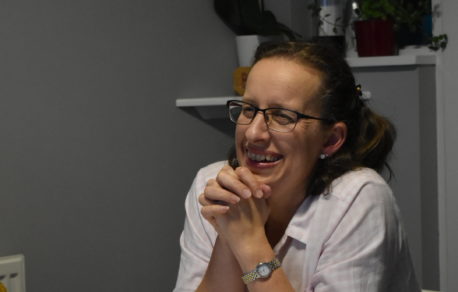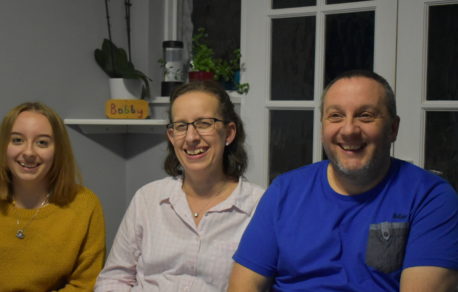
The importance of self-esteem
Self-esteem is an important part of our identity as human beings. But what does it really mean, and how can we improve it if we need to? In this week’s blog, Cognitive Behavioural Hypnotherapist Andy Thornton answers these questions and more.
What is self-esteem?
Self-esteem is the term used to describe how we think and feel about ourselves, how we rate our sense of self-worth and personal value. Some people have, or appear to have, very high levels of self-esteem. They seem to think very highly of themselves and appear secure and confident in their place in the world. In fact, we may feel that some people may take their sense of self-esteem too far to the extent that it becomes narcissism.
Most of us though keep our self-esteem within a ‘normal’ range.
Self-esteem will naturally fluctuate from time to time with varying experiences and circumstances.
But we’ll usually have overall positive feelings towards ourselves and can see our behaviour, relationships, successes and failures as all part of the overall context of our lives. Problems can occur when we lose this sense of context and perspective and our self-view becomes too heavily skewed to the negative.
So while positive self-esteem can be taken to excessive levels, it’s more common to find people who struggle with low self-esteem. It can become extremely debilitating, negatively impacting on quality of life and our ability to cope with day to day challenges.
Where does low self-esteem come from?
The development of low self-esteem can often begin very early in life as we respond to what we see, hear and experience from people around us. A client of mine formed strong negative beliefs about her value and self-worth that can be traced back to early childhood.
These beliefs still exert a powerful influence many years later.
It’s also possible to develop low self-esteem from other things that happen in life, difficult experiences and illnesses for instance. And some people may simply be more likely to think negatively than others.
Whatever the origins, people who live with low self-esteem over long periods of time can suffer other mental health issues such as low mood or depression. Additionally, people may turn to unhelpful coping measures such as smoking or alcohol which can give short term relief but cause longer term harm.
So how might we spot when we, or someone close to us, is suffering from low self-esteem?
Low self-esteem in others
Perhaps the most obvious indicator is when someone tells us they have low self-esteem, or they might say that they don’t like themselves very much. In this instance the signs are fairly clear. But sometimes indicators may be more subtle such as frequent negative comparisons with other people, failure (or refusal) to recognise successes or positive behaviours, and frequent magnification of the negatives when things don’t go as well as they could’ve done.
Low self-esteem in ourselves
Surprisingly, becoming aware that we have low self-esteem could be more difficult for us to spot. This is because we may not always be consciously aware of the ongoing stream of negative self-talk that runs through our heads. Instead, we experience it as a kind of background noise that we are faintly aware of but don’t properly hear.
The common factor for both ourselves and others is most likely to be a fairly constant stream of negative self-talk and recurring negative automatic thoughts that arise and trigger negative feelings without us necessarily recognising what has happened. Another factor could be repeatedly talking ourselves down or negatively comparing ourselves with other people.
When we get locked into a cycle of self-criticism, we’re then likely to fall prey to one of the common thinking errors – magnification of the negative.
This is when we amplify all the things that might indicate we are not as good as we think we should be, or as other people, while at the same time ignoring or shrinking anything that might show us in a more positive light.
Another issue that can arise is all or nothing thinking, when if something isn’t perfect then it’s no good at all. This will be especially true for those things we see as our faults or when something has not gone as well as we wanted. And we probably wanted (demanded?) that we were perfect and then see anything less than perfect as failure.
All of the above can make life very difficult and lead people into safety-seeking behaviours. This is being in a place or doing only those things in which they feel safe and where they won’t be judged. This can lead to deliberately avoiding situations that might seem challenging. It will give a temporary respite from negative feelings or anxiety. However, safety-seeking and avoidance are likely to have a strengthening effect on the core fear and anxiety. And it’ll make it even more difficult to face next time, reinforcing our feelings of personal failure and lessening our self-esteem even further.
How can we begin to deal with low self-esteem?
The good news is that there are well proven ways in which feelings of low self-esteem can be improved through the development of awareness, and a willingness to be curious about our thoughts and feelings.
If we suspect that someone close to us is experiencing low self-esteem, encouraging them to talk about how they’re feeling, being interested and non-judgmental and using exploratory, open questions can help to build understanding and identify where negative thinking is giving rise to problems.
For ourselves it’s necessary firstly to become aware of what we are actually thinking and feeling about any situation and to be curious about how what we think and what we feel are linked. If we change our thinking, we’re likely to experience different physical sensations and find it easier to behave differently.
Some specific things that can help are:
- Avoid depending on other people changing to make you feel better. This is unlikely to happen and hands over control of the way you feel to someone else.
- Be curious about your thoughts. Develop your ability to be consciously aware of your thoughts and a curiosity about whether they are really accurate or true. Do you always make mistakes or only sometimes? Is it true that no-one around you ever gets things wrong?
- Listen for, and challenge, generalised negative thinking. Listen for words like always, everyone, never which are often inaccurate. Instead be really specific with yourself. When exactly did something go wrong for you? What specifically went wrong? What specifically went right?
- Tune in to the inner voice. Listen to how often you’re talking to yourself in a negative or critical way and develop a habit of challenging and changing this. It’s very easy to build a destructive habit of continual negative self-talk.
- Develop your ability to choose how you respond to different situations and avoid becoming the victim of circumstances. You can’t always control what happens to you, but you can control how you respond to it.
- Make a point of writing down all the things you’re good at. Include all the good things that happen to you and all the things that you achieve, no matter how small. Most people readily keep track of things that didn’t go well and completely ignore the balancing view of things that did.
And remember that while it is possible to make significant changes on your own it is perfectly OK to find that idea too challenging. Don’t be afraid to look for help and support from family, friends or a qualified therapist. Having someone to support you can really make a difference.
In closing
I thought it would be fitting to close with this quote from Marianne Williamson which was included in Nelson Mandela’s inauguration speech of 1994. However you interpret the word God, I hope you can find both inspiration and courage here.
“Our deepest fear is not that we are inadequate, our deepest fear is that we are powerful beyond measure. It is our light, not our darkness, that most frightens us. We ask ourselves, ‘Who am I to be brilliant, gorgeous, talented, fabulous?’. Actually, who are you not to be? You are a child of God. Your playing small doesn’t serve the world.” – Marianne Williamson


